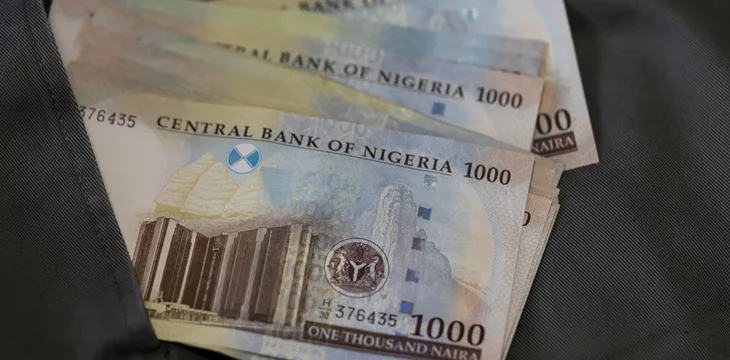|
Getting your Trinity Audio player ready...
|
Nigerian lawmakers have called for regulating the digital asset sector to boost the country’s struggling economy and the naira.
“The issue of cryptocurrency must be regulated because Nigerians are trading in crypto,” stated Sen. Osita Izunaso, the Senate Capital Markets Committee chairman. Osita spoke to the media after vetting Emomotimi Agama, the newly appointed pro-Bitcoin head of the country’s Securities and Exchange Commission (SEC).
Nigeria’s digital asset industry has been turbulent this year. After starting the year on a high after the reversal of a law restricting banking services to virtual asset service providers (VASPs), it was soon rocked by accusations of sparking the naira’s rapid depreciation. The government soon banned offshore exchanges and arrested two Binance executives.
Despite the rocky year, the Senate committee believes digital assets have a big role to play in Nigeria.
“Since Nigerians are trading in crypto, why are we not regulating it? Where is the money going if we don’t regulate activities in the crypto market? You can’t stop them from trading in the crypto market. So, because we can’t stop them, you have to regulate it,” Sen. Osita said.
Over the past two years, Nigeria’s economy has undergone one of its worst downturns. The price of petrol has tripled, while food prices have doubled. Annual inflation has shot up to its highest in thirty years, and the naira has been battered against the dollar.
And yet, President Bola Tinubu believes the country can revive its economy and rediscover the momentum that made it Africa’s largest.
Senator Osita believes digital assets have a significant role to play in this grand vision.
“President Bola Tinubu has told Nigerians that he is looking for a N1 trillion economy. That can only be done through the stock exchange and the capital market. I believe that we are going to see more government activities in stock exchange, capital market, commodities exchange, and crypto,” he told the media.
One of the issues the government has used to attack digital assets is foreign exchange manipulation. Regulatory agencies, including the central bank, have accused exchanges like Binance of conducting a “sophisticated heist” against the economy.
However, according to the legislator, the naira’s woes are from a lack of liquidity in the capital markets, a challenge that well-regulated digital asset activity can solve.
“But if we develop our capital market, and develop our crypto market, we will bring more liquidity into the system. That will help to cushion all the problems we have.”
The new SEC head, Agama, pledged the agency’s commitment to promoting innovation in the country’s capital market but avoided discussing digital assets.
While the Senate committee called for regulations, reports from the country’s capital indicate that the government plans to ban P2P digital asset payments, with ‘crypto’ now classified as a national security issue.
Meanwhile, Binance’s Tigran Gambaryan remains in custody. The former United States federal agent has been charged with five counts on behalf of Binance, including tax evasion, money laundering and fraud.
Gambaryan’s family recently alleged that the Nigerian government has denied him access to medical attention after he collapsed in court a week ago.
“Despite a court order from Justice Emeka Nwite issued on Thursday, May 23, Tigran Gabaryan has still not been moved to hospital from Kuje prison. It is suspected that he has a severe throat infection and Malaria,” a statement from the family claimed.
“He has done nothing wrong and is suffering simply because he accepted an invitation to a meeting in Abuja. This has gone too far,” lamented his wife in a statement to one media outlet.
Watch Eswar Prasad: The future of money through blockchain and digital currencies

 02-26-2026
02-26-2026 




